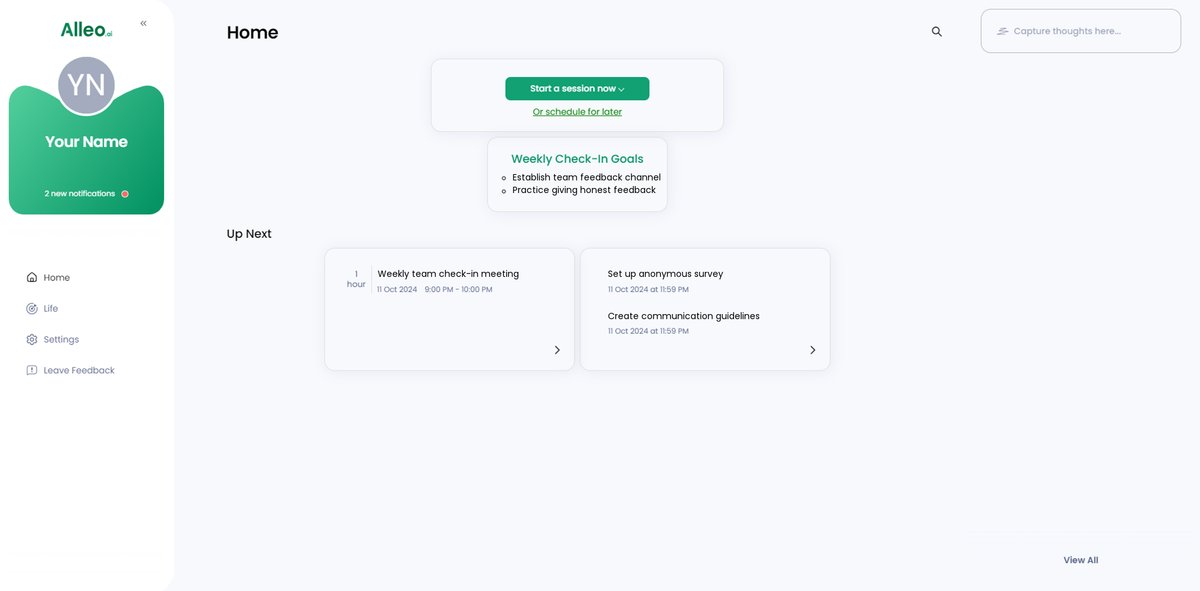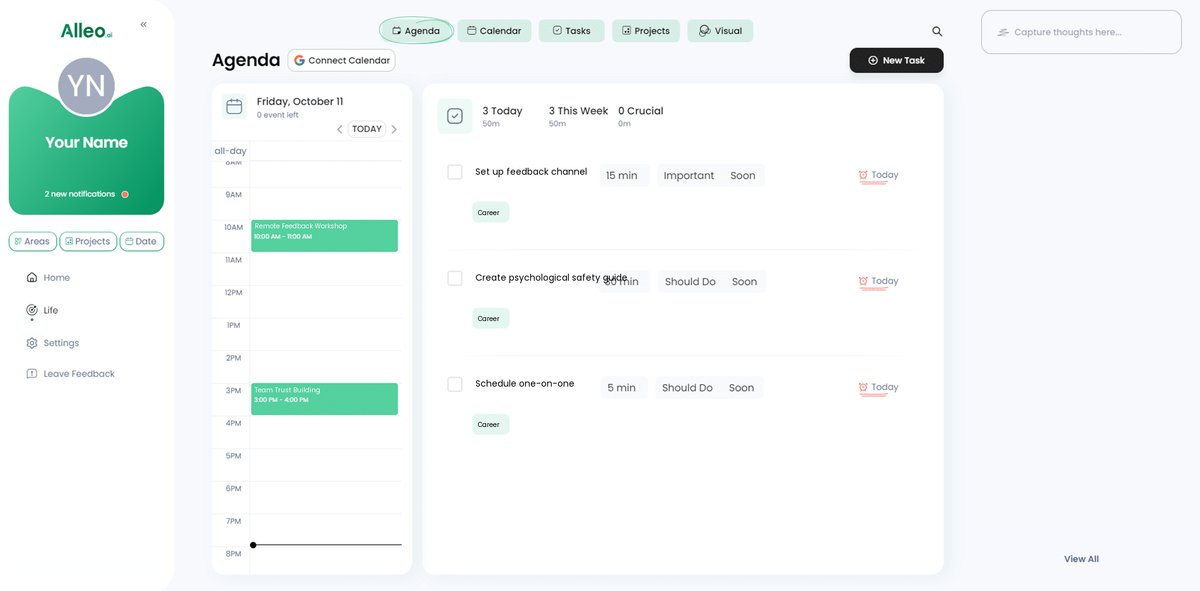7 Proven Methods for Fostering Honest Feedback in Remote Teams
Have you ever felt like your team isn’t giving you the honest feedback you need to improve? Fostering remote team feedback can be challenging in today’s distributed work environment.
As a life coach, I’ve helped many professionals navigate these challenges. In my experience, honest feedback is crucial for team success and building trust in remote teams.
In this article, you’ll discover proven strategies for fostering remote team feedback. We’ll cover remote team communication channels, psychological safety, regular virtual one-on-one meetings, and more. These tips will help enhance employee engagement in distributed teams and improve constructive criticism in remote work.
Let’s dive in to explore effective methods for remote performance evaluations and asynchronous feedback methods.

The Impact of a Lack of Honest Feedback
Without honest feedback, team performance and morale can quickly deteriorate. Many clients initially struggle with understanding how critical voices can actually enhance accountability and employee engagement in distributed teams.
When managers remove these voices, it often leads to unresolved issues and a toxic work environment, especially when fostering remote team feedback.
You might notice that team members become disengaged and less motivated. In my experience, people often find that a lack of feedback creates a cycle of poor performance and low morale, particularly challenging in remote team communication.
This is especially true in remote teams where communication is already a challenge, making virtual feedback sessions crucial.
Imagine trying to navigate your workday without knowing how you’re doing or where you need improvement. This uncertainty can be incredibly frustrating, highlighting the importance of constructive criticism in remote work.
That’s why it’s crucial to address these issues head-on by fostering an environment of open, honest communication and building trust in remote teams.

Key Actions for Fostering Honest Feedback in Remote Teams
Overcoming this challenge of fostering remote team feedback requires a few key steps. Here are the main areas to focus on to make progress in improving remote team communication:
- Establish clear communication channels: Set up dedicated platforms and guidelines for effective communication in distributed teams.
- Create a psychological safety environment: Train managers and promote vulnerability to build trust in remote teams.
- Implement regular one-on-one check-ins: Schedule virtual one-on-one meetings to discuss professional development and personal well-being.
- Encourage anonymous feedback mechanisms: Use digital feedback tools for managers, such as anonymous surveys, and act on the feedback.
- Use role-playing exercises for feedback practice: Organize virtual feedback sessions to practice giving and receiving constructive criticism in remote work.
- Develop a continuous improvement mindset: Encourage learning and implement feedback loops for remote performance evaluations.
- Foster a culture of open, constructive dialogue: Promote open communication and respectful debates to enhance employee engagement in distributed teams.
Let’s dive in to explore these strategies for fostering remote team feedback!
1: Establish clear communication channels
Establishing clear communication channels is critical for fostering honest feedback in remote teams, a key aspect of fostering remote team feedback.
Actionable Steps:
- Set up dedicated communication platforms: Use tools like Slack or Microsoft Teams for specific team interactions, enhancing remote team communication.
- Create guidelines for effective communication: Define response times and formats to ensure clarity and consistency in virtual feedback sessions.
- Schedule regular team meetings: Hold weekly meetings to keep everyone aligned and informed, boosting employee engagement in distributed teams.
Explanation:
Clear communication channels help prevent misunderstandings and ensure everyone feels heard. By implementing these steps, you create a structured environment that promotes transparency and facilitates constructive criticism in remote work.
According to Andrea Fortuna, clear communication and regular check-ins are vital for inclusive team management, which is essential for building trust in remote teams.
Next, let’s explore how to create a psychological safety environment for fostering remote team feedback.

2: Create a psychological safety environment
Creating a psychological safety environment is essential for fostering remote team feedback and enabling distributed teams to thrive and communicate openly.
Actionable Steps:
- Train managers on psychological safety: Educate leaders on fostering an environment where team members feel safe to voice their concerns, enhancing remote team communication.
- Promote vulnerability: Encourage leaders to share their own mistakes and learning experiences to build trust in remote teams.
- Implement team-building activities: Organize activities that help build rapport and trust among team members, improving employee engagement in distributed teams.
Key benefits of a psychologically safe environment include:
- Increased innovation and creativity
- Higher employee engagement and satisfaction
- Improved problem-solving and decision-making
Explanation:
These steps are crucial for building a supportive environment where team members feel valued and secure. When leaders promote vulnerability and trust, it sets a precedent for open communication and constructive criticism in remote work.
According to Harvard Business School, teams with high psychological safety help new hires maintain their willingness to take interpersonal risks.
Next, we will explore the importance of regular one-on-one check-ins, which are crucial for fostering remote team feedback.

3: Implement regular one-on-one check-ins
Regular one-on-one check-ins are crucial for fostering remote team feedback and building strong relationships in distributed teams.
Actionable Steps:
- Schedule weekly or bi-weekly meetings: Set up consistent times for managers and team members to connect and discuss progress through virtual one-on-one meetings.
- Focus on both development and well-being: Use these virtual feedback sessions to talk about professional growth and personal well-being, ensuring a holistic approach to employee engagement in distributed teams.
- Document action items: Keep a record of discussed points and follow up on action items to show commitment to continuous improvement and remote performance evaluations.
Explanation:
These steps help create a supportive environment where team members feel valued and heard. Regular check-ins enable ongoing dialogue, addressing concerns before they escalate, which is essential for fostering remote team feedback.
According to Wishup, clear communication channels and regular performance reviews are critical for effective remote team communication. Implementing these practices ensures alignment and fosters a culture of trust in remote teams.
Next, we’ll explore the importance of encouraging anonymous feedback mechanisms and asynchronous feedback methods.

4: Encourage anonymous feedback mechanisms
Encouraging anonymous feedback mechanisms is essential for fostering remote team feedback and honest communication in remote teams.
Actionable Steps:
- Implement anonymous survey tools: Use digital feedback tools for managers like SurveyMonkey or Google Forms to gather feedback without revealing identities, enhancing employee engagement in distributed teams.
- Review and act on feedback: Regularly review the feedback and take action on it to show that you value team input, supporting constructive criticism in remote work.
- Share aggregated results: Present the collected feedback data to the team and outline steps taken to address concerns, promoting remote team communication and transparency.
Explanation:
These steps help create a safe space for team members to voice their opinions without fear of repercussions, building trust in remote teams.
Anonymous feedback mechanisms are crucial for fostering remote team feedback and open dialogue in virtual feedback sessions.
According to SnapBar, creating a safe and supportive environment for feedback is vital for remote teams.
By implementing these practices, you can enhance remote team communication and accountability within your team, supporting effective remote performance evaluations.

5: Use role-playing exercises for feedback practice
Using role-playing exercises for feedback practice can significantly enhance team members’ ability to give and receive constructive feedback, especially when fostering remote team feedback.
Actionable Steps:
- Organize regular role-playing sessions: Set up monthly or bi-monthly virtual feedback sessions where remote team members can practice feedback scenarios.
- Use real workplace situations: Design exercises that reflect actual challenges team members face in remote work to make the practice relevant.
- Provide constructive feedback: After each session, offer constructive criticism in remote work on how team members handled the scenarios to improve their skills.
Explanation:
These steps matter because they help team members build confidence and improve their feedback skills in distributed teams.
Regular practice in a safe environment ensures that feedback becomes a natural part of the remote team culture.
According to Radical Candor, role-playing feedback can create a culture of open communication and trust within teams, which is crucial for fostering remote team feedback.
This approach also encourages continuous improvement and collaboration in remote team communication.
Role-playing exercises are a practical and engaging way to foster honest feedback in your remote team, enhancing employee engagement in distributed teams.

6: Develop a continuous improvement mindset
Developing a continuous improvement mindset is vital for maintaining high performance and adaptability in remote teams, especially when fostering remote team feedback.
Actionable Steps:
- Encourage a culture of continuous learning: Provide access to relevant training and resources to help team members enhance their skills and improve remote team communication.
- Implement feedback loops: Enable team members to suggest improvements and see these suggestions implemented promptly, utilizing digital feedback tools for managers.
- Celebrate small wins: Recognize and celebrate progress to keep motivation and employee engagement in distributed teams high.
To foster a continuous improvement mindset and enhance remote team culture and transparency, consider these strategies:
- Encourage experimentation and learning from failures
- Set challenging but achievable goals
- Promote knowledge sharing within the team through virtual feedback sessions
Explanation:
These steps matter because they help foster an environment where continuous growth is prioritized. Encouraging learning and implementing feedback loops ensure that your team remains adaptable and motivated, which is crucial for building trust in remote teams.
According to Training Magazine, regular feedback and recognition can significantly boost remote team dynamics and performance.
Let’s now explore how fostering a culture of open, constructive dialogue can further enhance your team’s communication, including the use of asynchronous feedback methods and virtual one-on-one meetings.

7: Foster a culture of open, constructive dialogue
Creating a culture of open, constructive dialogue is vital for enhancing communication and collaboration within remote teams, especially when fostering remote team feedback.
Actionable Steps:
- Promote open communication: Encourage leaders to set an example by being transparent and approachable in remote team communication.
- Create forums for discussion: Establish channels or forums where team members can freely share ideas and concerns, facilitating virtual feedback sessions.
- Encourage respectful debates: Foster an environment where team members feel safe to engage in healthy debates and discussions, improving employee engagement in distributed teams.
Explanation:
These steps matter because they build a foundation of trust and openness, enabling team members to feel valued and heard. By promoting open communication and creating forums for discussion, you ensure that everyone has a platform to voice their opinions, which is crucial for fostering remote team feedback.
According to Harvard Professional Development, transparent communication is essential for preventing a toxic workplace culture.
Key elements of constructive dialogue include:
- Active listening and empathy
- Focusing on solutions rather than blame
- Providing specific and actionable feedback, essential for constructive criticism in remote work
Implementing these practices will help you maintain a collaborative and respectful team environment, building trust in remote teams and enhancing remote team culture and transparency.

Partner with Alleo to Foster Honest Feedback
We’ve explored how to foster honest feedback in remote teams and its benefits for employee engagement in distributed teams. Did you know you can work with Alleo to make this process of fostering remote team feedback smoother and more effective?
Setting up an account with Alleo is simple. Create a personalized plan tailored to your needs for remote team communication and virtual feedback sessions.
Alleo’s AI coach will guide you through each step, from establishing clear communication channels to fostering a culture of open dialogue and building trust in remote teams.
You’ll receive full coaching sessions, just like with a human coach. Alleo follows up on your progress, handles changes, and keeps you accountable via text and push notifications, perfect for asynchronous feedback methods and remote performance evaluations.
Ready to get started for free? Let me show you how to improve your remote team culture and transparency!
Step 1: Logging In or Creating an Account
To start fostering honest feedback in your remote team, log in to your Alleo account or create a new one to access personalized AI coaching tailored to your team’s communication needs.

Step 2: Choose “Building better habits and routines”
Click on “Building better habits and routines” to start improving your team’s communication practices and foster a culture of honest feedback, which is crucial for remote team success as discussed in the article.

Step 3: Select “Career” as Your Focus Area
Choose “Career” as your focus area to address workplace communication challenges and foster honest feedback in your remote team, aligning with the strategies discussed in the article for improved team performance and accountability.

Step 4: Starting a Coaching Session
Begin your journey with Alleo by scheduling an initial intake session, where you’ll work with the AI coach to create a personalized plan for fostering honest feedback in your remote team.

Step 5: Viewing and managing goals after the session
After your coaching session on fostering honest feedback, check your Alleo app’s home page to review and manage the goals you discussed, ensuring you stay on track with implementing the strategies for your remote team.

Step 6: Adding events to your calendar or app
Use the calendar and task features in the Alleo app to schedule and track your progress on implementing honest feedback practices, such as regular check-ins and role-playing exercises, ensuring you stay accountable to your team communication goals.

Wrapping Up: Your Path to Honest Feedback
By now, you understand the importance of fostering honest feedback in remote teams. Implementing clear communication, psychological safety, and regular check-ins will set you on the right path to improving remote team communication and building trust in remote teams.
Remember, it’s all about creating a supportive environment where everyone feels heard, which is crucial for employee engagement in distributed teams.
You can make a difference in fostering remote team feedback.
Alleo is here to help you achieve this goal. With its AI coaching, setting up these practices for constructive criticism in remote work becomes seamless.
Try Alleo for free today. Boost your team’s communication and accountability through virtual feedback sessions and digital feedback tools for managers.
Let’s transform your remote team together by enhancing your remote team culture and transparency.